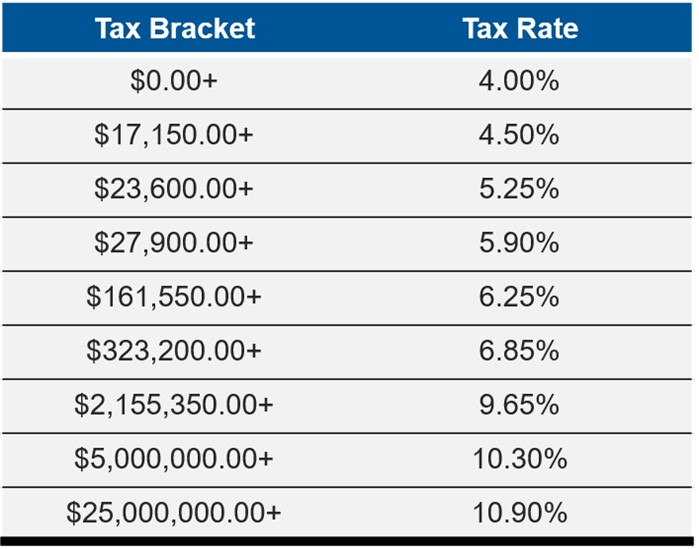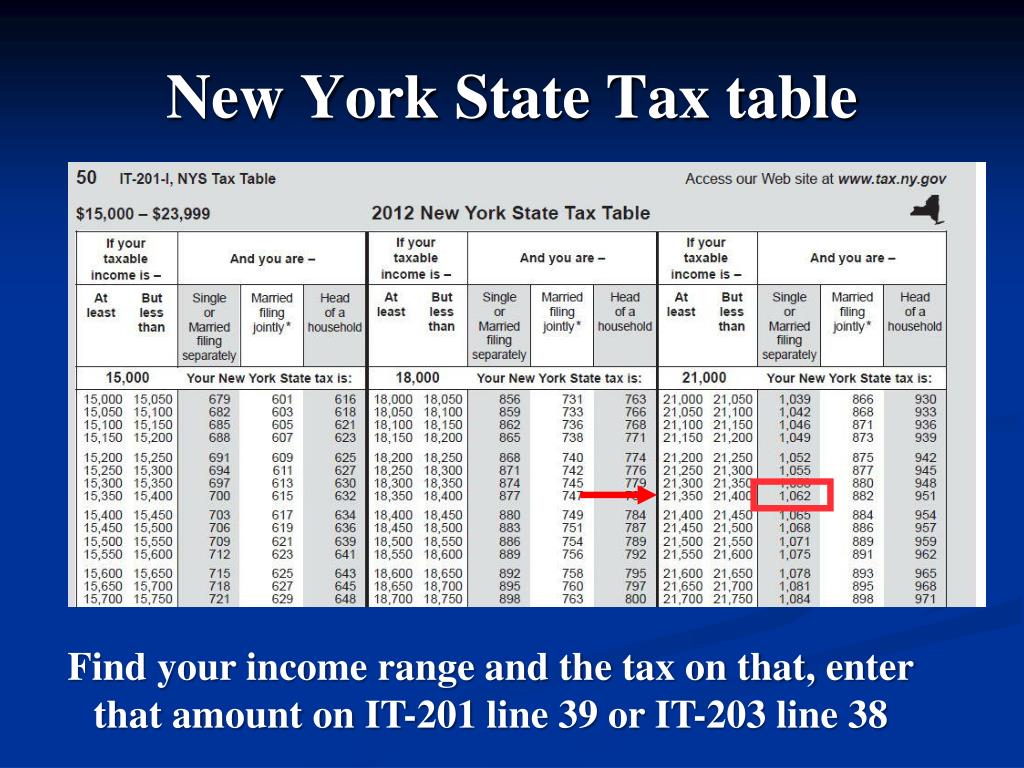NY state taxation plays a pivotal role in shaping the financial landscape of residents and businesses across the Empire State. From income tax to sales tax, the intricacies of New York's tax system can often leave individuals and companies scratching their heads. Whether you're a new resident, a small business owner, or someone looking to better understand the financial obligations tied to living in New York, this article aims to demystify the complexities of NY state taxation. With insights into key tax laws, practical advice, and actionable tips, we'll equip you with the knowledge you need to navigate this often-confusing terrain.
As one of the most economically vibrant states in the nation, New York's tax structure is designed to support public services, infrastructure development, and social programs. However, understanding the nuances of NY state taxation requires more than just a cursory glance. From the progressive income tax brackets to the varying sales tax rates across counties, each element contributes to the overall tax burden faced by individuals and businesses alike. This guide will delve into these details, offering clarity and practical solutions to help you stay compliant and financially savvy.
Whether you're dealing with personal income taxes, property taxes, or business-related obligations, staying informed is crucial. By the end of this article, you'll have a solid grasp of the key components of NY state taxation, empowering you to make informed decisions and potentially save money. Let's dive into the details and explore how New York's tax system impacts your wallet.
Read also:Margaret Brennan
Table of Contents
- 1. What Are the Key Components of NY State Taxation?
- 2. How Does NY State Taxation Impact Personal Finances?
- 3. Why Is NY State Taxation Unique Compared to Other States?
- 4. Exploring NY State Income Tax Brackets
- 5. Understanding Sales Tax Rates Across NY Counties
- 6. NY State Property Tax: What You Need to Know
- 7. Business Tax Obligations in NY State
- 8. How Can You Minimize Your NY State Tax Burden?
What Are the Key Components of NY State Taxation?
NY state taxation encompasses a wide array of components that collectively contribute to the state's revenue. These include income tax, sales tax, property tax, and various business-related taxes. Each of these elements serves a distinct purpose, ensuring that funds are allocated to essential services such as education, healthcare, and infrastructure. Understanding these components is fundamental to grasping the overall tax landscape in New York.
Income tax, for instance, is levied on the earnings of individuals and corporations. It follows a progressive structure, meaning higher earners pay a larger percentage of their income in taxes. Sales tax, on the other hand, applies to the purchase of goods and services, with rates varying by county. Property tax is assessed based on the value of real estate, while business taxes cover a range of obligations, including franchise taxes and employment taxes.
By examining each of these components in detail, we can gain a comprehensive understanding of how NY state taxation affects both individuals and businesses. This knowledge is invaluable for planning and budgeting, ensuring compliance, and potentially reducing tax liabilities.
How Does NY State Taxation Impact Personal Finances?
For individuals, NY state taxation significantly impacts personal finances. The progressive nature of income tax means that as your earnings increase, so does your tax liability. This can affect disposable income and savings, making it essential to plan accordingly. Additionally, sales tax adds to the cost of everyday purchases, while property tax can impact homeownership decisions.
Understanding these impacts allows individuals to make informed financial decisions. For example, knowing the sales tax rate in your county can help you budget for major purchases. Similarly, being aware of property tax assessments can influence where you choose to buy a home. By staying informed, you can better manage your finances and avoid unexpected tax burdens.
Why Is NY State Taxation Unique Compared to Other States?
NY state taxation stands out due to its complexity and the range of taxes it imposes. Unlike some states that have no income tax or sales tax, New York employs a comprehensive system designed to generate substantial revenue. This uniqueness is further highlighted by the varying sales tax rates across counties, which reflect local economic conditions and priorities.
Read also:Emmanuel Acho Wife A Closer Look At His Personal Life And Family
Moreover, New York's tax policies often incorporate elements aimed at promoting economic growth and social welfare. For instance, tax incentives are offered to businesses that invest in certain regions or industries, while credits and deductions are available to individuals for education and healthcare expenses. These features make NY state taxation both challenging and rewarding, requiring a nuanced understanding to fully leverage its benefits.
Exploring NY State Income Tax Brackets
NY state income tax brackets are structured to ensure that tax liability increases with income. As of the latest updates, there are several brackets, each with its own tax rate. For example, the lowest bracket may tax income at 4%, while the highest could reach up to 8.82%. These rates are applied to taxable income after deductions and exemptions, making it crucial to understand how they affect your overall tax bill.
It's important to note that these brackets can change annually based on legislative updates and inflation adjustments. Staying informed about these changes can help you anticipate and prepare for your tax obligations. Additionally, understanding how your income falls within these brackets allows you to strategize ways to reduce taxable income, such as through contributions to retirement accounts or utilizing tax credits.
Understanding Sales Tax Rates Across NY Counties
Sales tax rates in NY state vary significantly across counties, reflecting local economic conditions and priorities. For instance, New York City has one of the highest rates, combining the state's base rate with additional local taxes. In contrast, rural counties may have lower rates, impacting consumer spending patterns.
These variations are important for both consumers and businesses. For consumers, knowing the sales tax rate in your area can help you budget for purchases and potentially save money by shopping in lower-tax regions. For businesses, understanding these rates is crucial for accurate pricing and compliance, especially for those operating in multiple counties.
NY State Property Tax: What You Need to Know
Property tax in NY state is assessed based on the value of real estate, impacting homeowners and property investors alike. The assessment process involves determining the market value of a property, which is then multiplied by the tax rate set by local authorities. This rate can vary widely across counties and municipalities, influenced by factors such as population density and local government budgets.
For homeowners, understanding property tax assessments is vital for budgeting and financial planning. Additionally, being aware of potential tax breaks, such as the School Tax Relief (STAR) program, can help reduce the burden. By staying informed about these aspects, you can better manage your property-related expenses.
Business Tax Obligations in NY State
Businesses operating in NY state face a range of tax obligations, including franchise taxes, employment taxes, and sales tax. Franchise taxes are levied on corporations based on their net income or net worth, depending on the type of entity. Employment taxes cover contributions to unemployment insurance and workers' compensation funds, while sales tax applies to goods and services sold to customers.
Complying with these obligations requires careful record-keeping and timely filings. Businesses must also stay updated on legislative changes that could impact their tax liabilities. By understanding these requirements and leveraging available credits and deductions, companies can effectively manage their tax responsibilities and optimize financial performance.
How Can You Minimize Your NY State Tax Burden?
Minimizing your NY state tax burden involves a combination of strategic planning and proactive measures. For individuals, this might include maximizing contributions to retirement accounts, taking advantage of available tax credits, and timing major purchases to take advantage of lower sales tax periods. For businesses, it could involve restructuring operations to qualify for tax incentives or relocating to areas with more favorable tax rates.
Engaging with a tax professional or accountant can also be beneficial, providing personalized advice and ensuring compliance with all applicable laws. By adopting these strategies, you can reduce your tax liabilities and enhance your financial well-being.
Frequently Asked Questions About NY State Taxation
Q1: How often do NY state tax brackets change?
A1: NY state tax brackets can change annually based on legislative updates and inflation adjustments. It's important to stay informed about these changes to accurately plan your tax obligations.
Q2: Are there any tax incentives for businesses in NY state?
A2: Yes, NY state offers various tax incentives for businesses, including credits for investing in certain regions or industries. These incentives aim to promote economic growth and development across the state.
Conclusion
NY state taxation is a multifaceted system that impacts individuals and businesses in numerous ways. By understanding its components, impacts, and unique features, you can better manage your financial obligations and potentially reduce your tax burden. Whether you're dealing with income tax, sales tax, property tax, or business-related obligations, staying informed and proactive is key to navigating this complex landscape. With the insights provided in this guide, you're well-equipped to make informed decisions and thrive financially in the Empire State.


